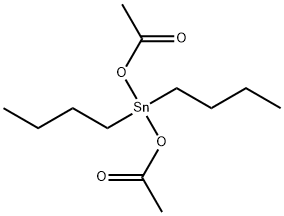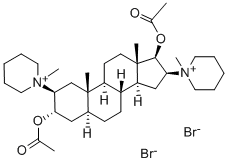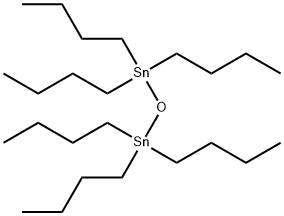A3518512
Dibutyltin Diacetate , >95.0%(W) , 1067-33-0
Synonym(s):
Diacetoxydibutylstannane, Diacetoxydibutyltin;Diacetoxydibutyltin;Dibutyltin diacetate
CAS NO.:1067-33-0
Empirical Formula: C12H24O4Sn
Molecular Weight: 351.03
MDL number: MFCD00008697
EINECS: 213-928-8
| Pack Size | Price | Stock | Quantity |
| 25G | RMB40.00 | In Stock |
|
| 100G | RMB94.40 | In Stock |
|
| 500G | RMB312.00 | In Stock |
|
| 2.5kg | RMB1200.80 | In Stock |
|
| others | Enquire |
Update time: 2022-07-08
PRODUCT Properties
| Melting point: | 7-10 °C(lit.) |
| Boiling point: | 142-145 °C10 mm Hg(lit.) |
| Density | 1.32 g/mL at 25 °C(lit.) |
| vapor density | 12 (vs air) |
| vapor pressure | 1.3 mm Hg ( 25 °C) |
| refractive index | n |
| Flash point: | >230 °F |
| storage temp. | Store below +30°C. |
| solubility | 0.006g/l |
| form | liquid |
| color | colorless |
| Specific Gravity | 1.32 |
| Water Solubility | insoluble |
| BRN | 4136035 |
| Exposure limits | ACGIH: TWA 0.1 mg/m3; STEL 0.2 mg/m3 (Skin) NIOSH: IDLH 25 mg/m3; TWA 0.1 mg/m3 |
| LogP | 3.39 at 20℃ |
| CAS DataBase Reference | 1067-33-0(CAS DataBase Reference) |
| NIST Chemistry Reference | Dibutyltin diacetate(1067-33-0) |
| EPA Substance Registry System | Dibutyltin diacetate (1067-33-0) |
Description and Uses
As as stabilizer in chlorinated organics, and as a catalyst for condensation reactions.Di-n-butyltin diacetate is used as a stabilizer for polyvinyl chloride. It acts as a catalyst for the preparation of silicone and urethane foams. Further, it is used as a curing agent for silicone elastomers. In addition to this, it is used as a precursor for thin-film tin(IV) oxide gas sensing materials by laser-assisted chemical vapor deposition.
Safety
| Symbol(GHS) |     GHS05,GHS07,GHS08,GHS09 |
| Signal word | Danger |
| Hazard statements | H314-H317-H341-H360-H370-H372-H410 |
| Precautionary statements | P202-P273-P280-P303+P361+P353-P304+P340+P310-P305+P351+P338 |
| Hazard Codes | T,N,C |
| Risk Statements | 25-34-36/38-68-50/53-48/25-43-61-60 |
| Safety Statements | 26-36/37/39-45-37/39-28A-61-60-53 |
| RIDADR | UN 2922 8/PG 2 |
| WGK Germany | 3 |
| RTECS | WH6880000 |
| Autoignition Temperature | >200 °C |
| TSCA | Yes |
| HazardClass | 6.1 |
| PackingGroup | II |
| HS Code | 29310095 |
| Hazardous Substances Data | 1067-33-0(Hazardous Substances Data) |
| Toxicity | LD50 orally in Rabbit: 900 - 1235 mg/kg LD50 dermal Rabbit 2320 mg/kg |





